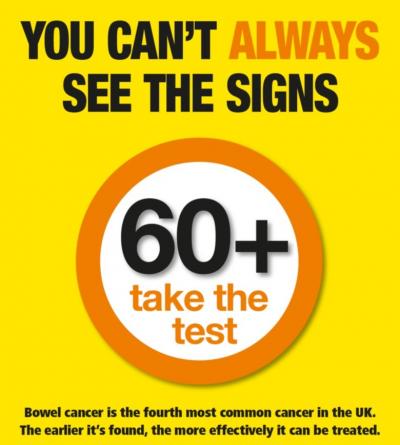Bowel cancer is very treatable but the earlier it is diagnosed, the easier it is to treat. People whose cancer is diagnosed at an early stage have a much higher chance of successful treatment than those whose cancer has become more widespread.
The NHS Bowel Cancer Screening Programme offers screening every 2 years to everyone aged 60 to 74 who are registered with a GP.
Residents will automatically be sent an invitation, then their screening kit, so they can complete the test in the privacy of their own home, and the results will determine whether further tests are required.
It’s important that people aged 60 to 74 ensure they are registered with their GP – and have provided up to date contact details – to ensure they receive the invitation. Anyone who isn't registered with a GP can find out how to do so at NHS.
People who are eligible but have not received an invite are asked to call 0800 707 6060.
John Denley, Wolverhampton’s Director of Public Health, said: “Bowel cancer is a terrible disease and sadly claims the lives of thousands of people every year.
“Early diagnosis is crucial for increasing the survival rate – and thankfully the vast majority of people diagnosed with bowel cancer survive if it is caught soon enough.
“Screening is used to detect bowel cancer when it is at an early stage in people with no symptoms. This is when treatment is more likely to be effective.
“Screening can also find polyps; these are abnormal clumps of cells in the bowel. Polyps are not cancers, but may develop into cancers over time. Polyps can be easily removed, which reduces the risk of bowel cancer developing.
"We are supporting Bowel Cancer Awareness Month and encouraging people in Wolverhampton who are aged 60 to 74 and eligible for the screening programme to take the test when they receive it."
People who are not eligible for screening, but have concerns that something is not quite right, should speak to their GP as soon as possible.
The risk of developing bowel cancer can be reduced by cutting down on red and processed meats, eating 5 or more portions of fruit and vegetables every day, keeping to a healthy weight, exercising regularly, stopping smoking and reducing alcohol intake.
For more information on bowel cancer screening, please visit NHS.
To find out more about Bowel Cancer Awareness Month, which runs throughout April and is organised by the charity Bowel Cancer UK, please visit Bowel Cancer UK.
